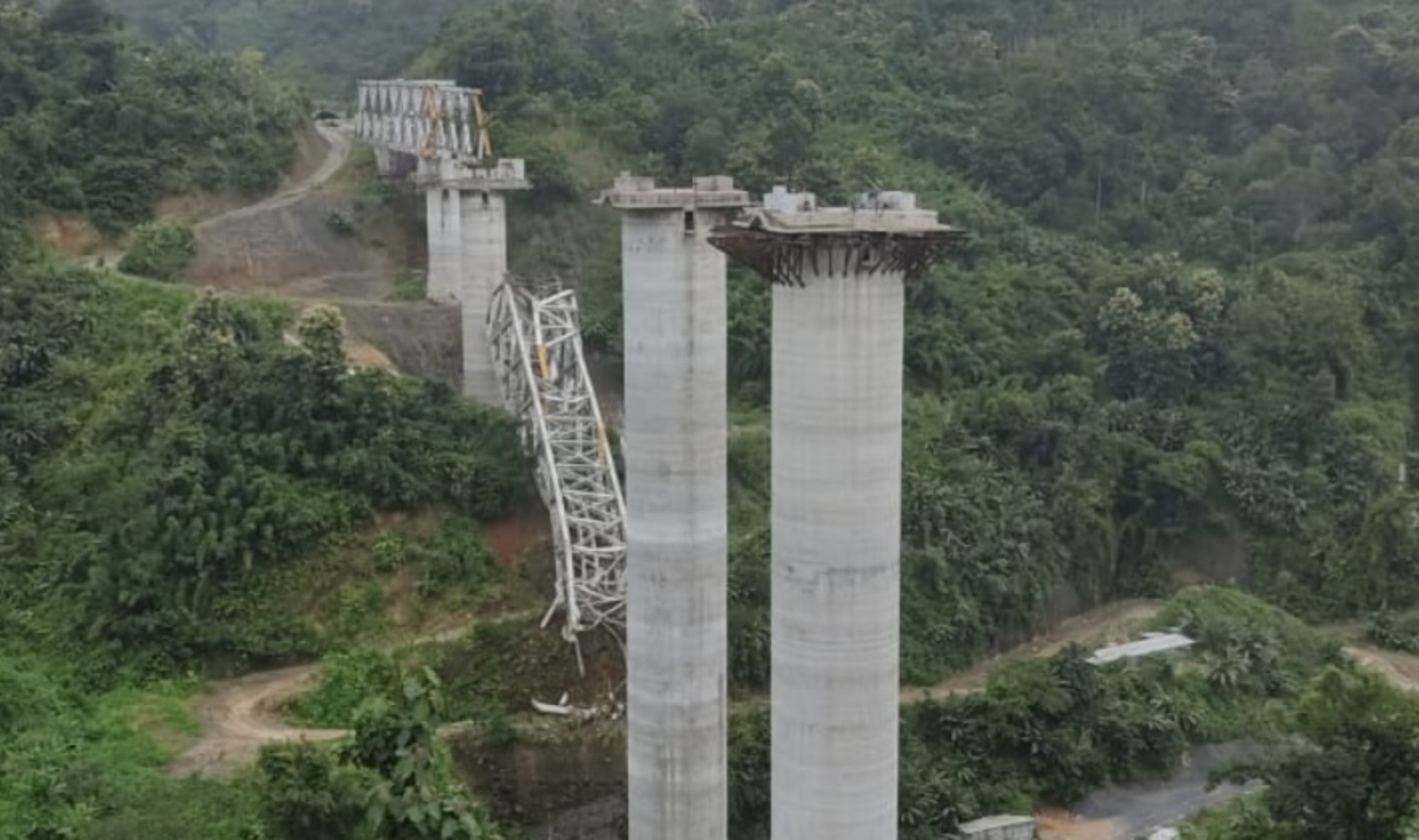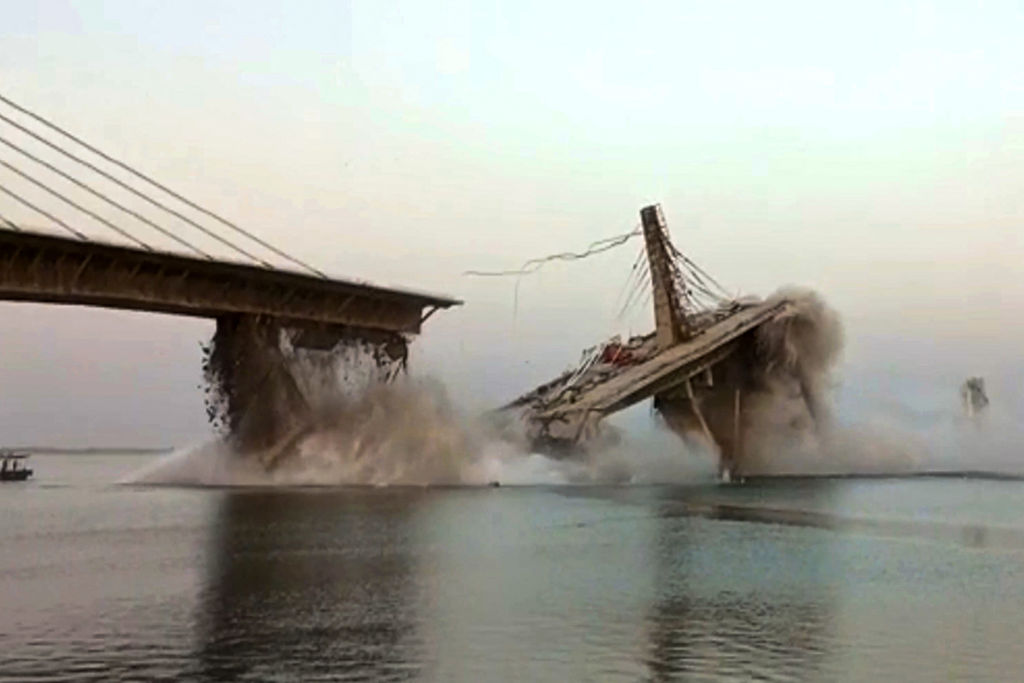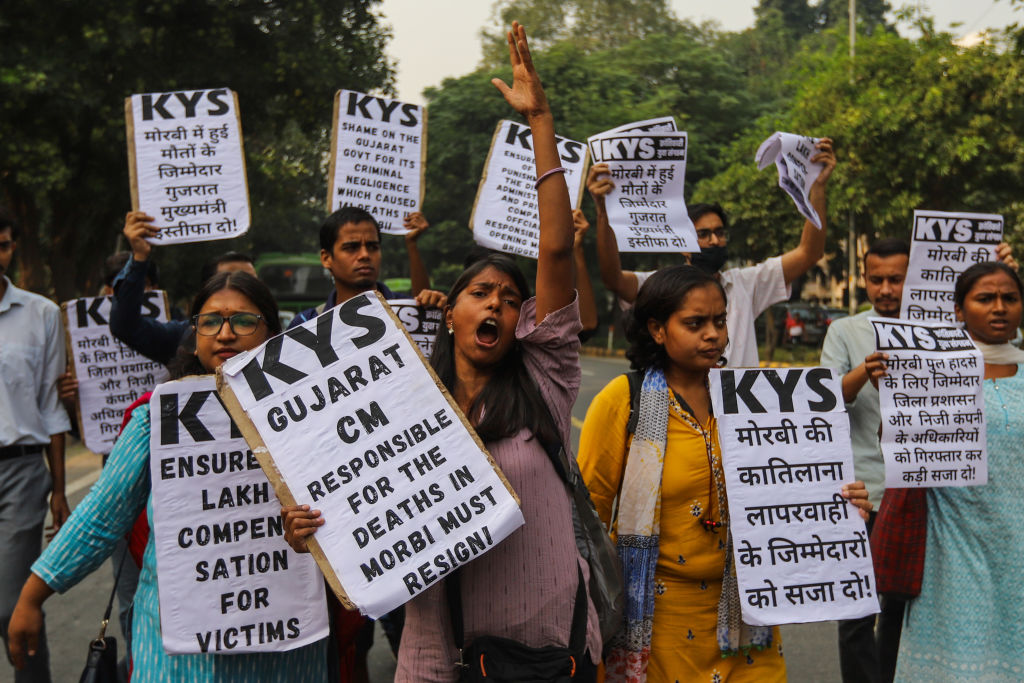Negligence and corruption: why bridges keep collapsing in India
At least 17 people died after a bridge under construction collapsed in northeast India, in the town of Sairang, Mizoram state, several media reported.
Photo: X/@dipr_mizoram
This is the latest in a series of infrastructure failures that have resulted in multiple deaths in the country.
In June, a four-lane concrete bridge that was being built across the River Ganges in the eastern state of Bihar collapsed for the second time in just over a year, raising questions about the quality of its construction, local media reported.
On October 30, 2022, 135 people, including 30 children, died after a suspension bridge collapsed in India’s western state of Gujarat.
Oreva Group, the company that performed maintenance on the bridge, was actually an electrical appliances manufacturer, the NYT reported.
The company had no experience operating bridges before taking over the one in Morbi, according to ‘Times of India’.
Scrutiny turned to how Oreva Group won the contract for the bridge’s renovation, and to whether it had ties to the Bharatiya Janata Party, which has governed Gujarat for more than two decades and which also controls the national government, led by Prime Minister Narendra Modi.
Building contracts are often awarded to relatives or associates of political leaders, who can acquire necessary permissions but may not be competent builders, an Indian journalist wrote for the ‘New York Times’.
Delhi Chief Minister Arvind Kejriwal said then that the Morbi bridge collapse was a result of “massive corruption,” according to local media.
Two of Oreva Group’s managers were charged, along with more people, of culpable homicide not amounting to murder, and causing grievous hurt by doing rash or negligent act, among other charges, ‘Times of India’ reported.
However, the two Oreva Group managers were granted bail in July, ‘The Indian Express’ reported.
Infrastructure failures in India rarely result in any accountability for companies or municipal officials, according to an Indian journalist.
In 2013, after the police failed to control crowding on a bridge in the central Indian state of Madhya Pradesh, one of its railings snapped, resulting in more than 100 deaths.
In 2014, an overpass that was under construction collapsed in Gujarat, killing at least 10 people. A police investigation found that both the design and the construction materials were faulty.
In 2016, part of an unfinished overpass, in the works for over seven years in Kolkata, came crashing down on a busy street, killing more than two dozen people. And that same year, 42 people were killed in the collapse of a British-era bridge in Maharashtra.
In all of these cases, the government and/or companies gave economic compensation to the victims’ families, but not much else.
In the 2022 Morbi bridge collapse, citizens keep demanding justice, as it is now known that Oreva Group had written several letters to the Morbi municipality warning them about the dilapidated condition of the bridge and the risks of keeping it open to the public, according to ‘The Economic Times’.
More for you
Top Stories






























